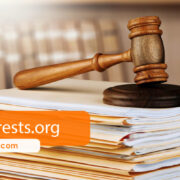Anxiety is a common emotion. It’s that feeling of worry or fear that puts you on edge. It might keep you up at night when something is bothering you. It’s normal to feel anxious when you are about to do something new, you have a medical dilemma, you are on a thrill ride, or you have to take a test. A little bit of anxiety is a good thing. It can prompt you to take action in your life. It’s your body’s natural defense mechanism that spikes your adrenaline levels and tells you to flee when there is a threat. However, too much anxiety can be crippling. Understand six steps or levels of anxiety to figure out what your anxiety level is.
Table of Contents
1. Your Anxiety May be Mild
It’s completely normal to experience mild anxiety from time to time. You may feel your pulse pick up the pace or your stomach could be unsettled when you’re buying a new house, you’re about to go on a trip, or you have a job interview. You can reassure yourself that your discomfort isn’t going to last. A little bit of anxiety can help you to keep all your ducks in a row.
2. Your Anxiety Could be Moderate
If you struggle with moderate anxiety, you may feel like you are on edge. It may be the only thing you can think about. Your heart might start racing. You could begin to sweat. If you are getting ready to do a speech or a big presentation in class, this could be the kind of anxiety that hits you.
3. Your Anxiety is Severe
If you are the victim of severe anxiety, you have a serious problem. You won’t be able to shake your symptoms. You can become paranoid and afraid of everything. You may not even be able to function normally. Severe anxiety can keep you from holding down a job, going out of the house, or spending time with others. You may become so withdrawn that you cut yourself off from the rest of the world.
4. You Suffer from Post-Traumatic Stress Disorder
You often hear about soldiers, firefighters, and members of law enforcement who experience post-traumatic stress disorder. They can experience extreme fear or anxiety based on something terrible that happened in their past. This condition can affect anyone who has faced some sort of trauma or violence in their lives. A sound or event could trigger a return of the feelings associated with that event. It can also result in changes in a person’s personality.
5. You Have a Panic Disorder
If you are the victim of panic attacks on a regular basis, you most likely have a disorder. You can recognize a panic attack if you feel sudden heart palpitations. They can be so severe your chest hurts. You may experience trouble breathing. You may be sick to your stomach. In some cases, you may become so lightheaded that you pass out. Your entire body may start to shake. In these moments, you are overcome by terror. You may not even know why it is happening. It could be due to something that has been bothering you or an upcoming event.
6. You Have One or More Phobias
If you suffer from a phobia, you have an intense fear of something. It could be small, cramped spaces, spiders, dogs, snakes, crowds, germs, or the dark. Something traumatic could have led to your phobia. Otherwise, it may just be a part of who you are. That doesn’t mean you can’t cope with your phobia.
Seek Help from a Professional to Deal with Your Anxiety
If you are struggling with more than mild anxiety, a Brisbane psychologist can help you. The first step will be to sit down and talk about the type of symptoms you are experiencing. Your psychologist will be able to pinpoint the specific level of anxiety you have. The next step will be to discuss factors that may contribute to your emotions. You can work together in therapy sessions to learn strategies for coping with your fears. An objective expert can help you to take control of your emotions in order to be happier and healthier.









Comments